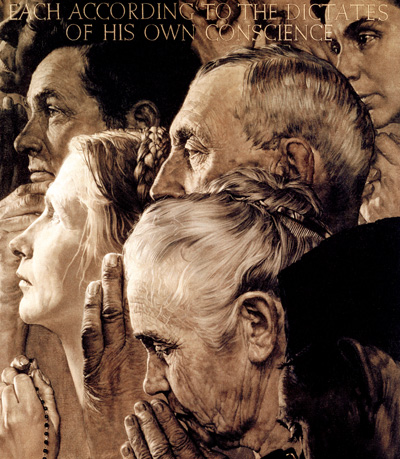Yesterday, First Things carried an exchange between HT’s own Dan Kelly and Yale prof Andrew March on the question of whether the Windsor decision, which struck down the Defense of Marriage Act, strengthens or weakens religious pluralism. Both contributors did an outstanding job – but I’m the editor, so I’m biased, check it out for yourself! As I wrote in my comment on the exchange:
The most interesting aspect of the debate for me is the question of “dignity.” Kelly attacks the court for presuming to confer human dignity upon practitioners of same-sex marriage; the law, he argues, cannot confer dignity upon human beings—and it cannot even effectively compel people to recognize one another’s human dignity. March, for his part, accepts the possibility of “justifiable transfers from one ledger to another in the national economy of dignity,” pointing to civil rights laws. For my own part, I have never gone as far as my friend Dan in discounting the role of public law in constructing our conceptions of meaning and purpose. We are, after all, cultural creatures. But I share his view that we cannot really form a meaningful concept of dignity that would make it subject to redistribution through political action—dignity isn’t dignity unless it’s intrinsic.
